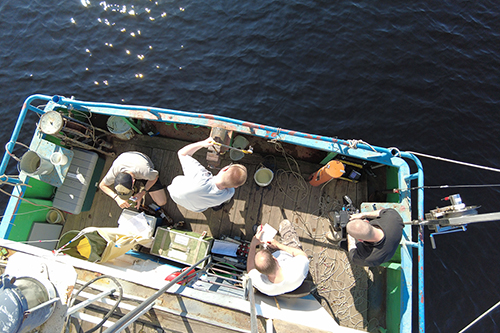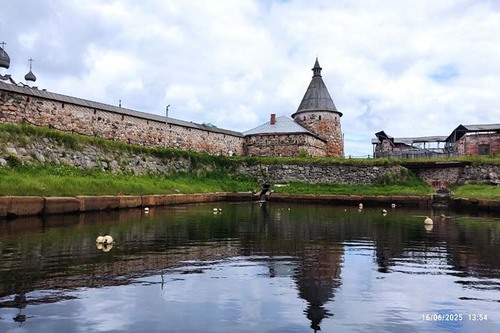The core agenda of the meeting included two scientific lectures.
Oleg Tholstoguzov presented a study on “Natural capital monetization in a carbon economy”. The presentation was based on the findings of the RFBR project “Economic assessment of land use change based on carbon balance in ecosystems of the European North”. The project was implemented jointly with scientists from the Institute of Biology and the Forest Research Institute KarRC RAS.
— We joined into the discussion related to climate change and carbon-minded land management. The aim of the study was to investigate the dynamics and structure of carbon stocks in man-disturbed and post-anthropogenic ecosystems of the European North, as well as to develop scientific and methodological foundations for the economic assessment of land use change based on a systemic approach that takes into account the patterns identified in both biological and economic studies, — told the scientist.
Under the climate agenda, the world is preparing for a new order of global trade and legitimization of economic activity with regard to, first, environmental standards and, second, institutional adaptation to a new format of the economy, including its low-carbon dimension.
— The first aspect is widely covered in academic literature. The second one, related to financial techniques and solutions for fundamental economic problems, is ignored in the ongoing discourse: the importance of economic factors precisely is overlooked, — remarked Oleg Tolstoguzov.
Scientists are convinced that the only way to simultaneously achieve the carbon economy objectives and fair monetization of the natural capital is to rely on the fundamental laws of economics.
— I'd like to point out the integrated approach and great contribution of different specialists. That is why the presentation is of particular interest! Karelian Research Center RAS actively participates in a number of studies on carbon-related topics and analyzes different ecosystems: mires, forests, agricultural landscapes, water bodies. This is a whole stratum of new knowledge, which can actually later form the basis for models that would represent the situation in our region, — Olga Bakhmet commented.
— Indeed, if we manage to model all carbon fluxes within the region, we will demonstrate whether our territory is a carbon dioxide source or sink and, hence, whether we can claim economic compensation, — Oleg Tolstoguzov emphasized.
In total, Karelian scientists published 13 articles and 1 monograph based on the results of the RFBR project. The project participants made 25 presentations at domestic and international conferences.

Speaking Svetlana Chazhengina, Senior Researcher, Laboratory of Geochemistry, Quaternary Geology and Geoecology, Institute of Geology KarRC RAS

Flowchart of hydrocarbon migration and sedimentation in pillow lavas
A study of ancient basalts of Yalguba and Solomennoye areas was presented by Svetlana Chazhengina, Senior Researcher, Laboratory of Geochemistry, Quaternary Geology and Geoecology, Institute of Geology KarRC RAS. Millimeter-sized inclusions of solid carbonaceous matter were detected in Paleoproterozoic pillow lavas. The carbon content in these inclusions (amygdales) is estimated at 6%. The scientists believe that the traces of hydrocarbons indicate an ancient oil basin may have existed in the area. A model of migration and sedimentation of hydrocarbonaceous matter was presented. The results were published in the international journal Lithos. We have told about this study in a previous post.
— Our study can help understand how oil was formed during the early stages of Earth's evolution and whether these processes were different from modern ones. In addition, carbon in igneous rocks can serve as a marker of oil occurrence in the area, — Svetlana Chazhengina remarked.
At the end of the meeting Olga Bakhmet informed that the journal “Transactions of the Karelian Research Centre RAS” was included in RSCI core. Alexander Titov, Corresponding Academician, the journal's Editor-in-Chief noted that the listing will make the journal more attractive to potential authors and expand their circle.












